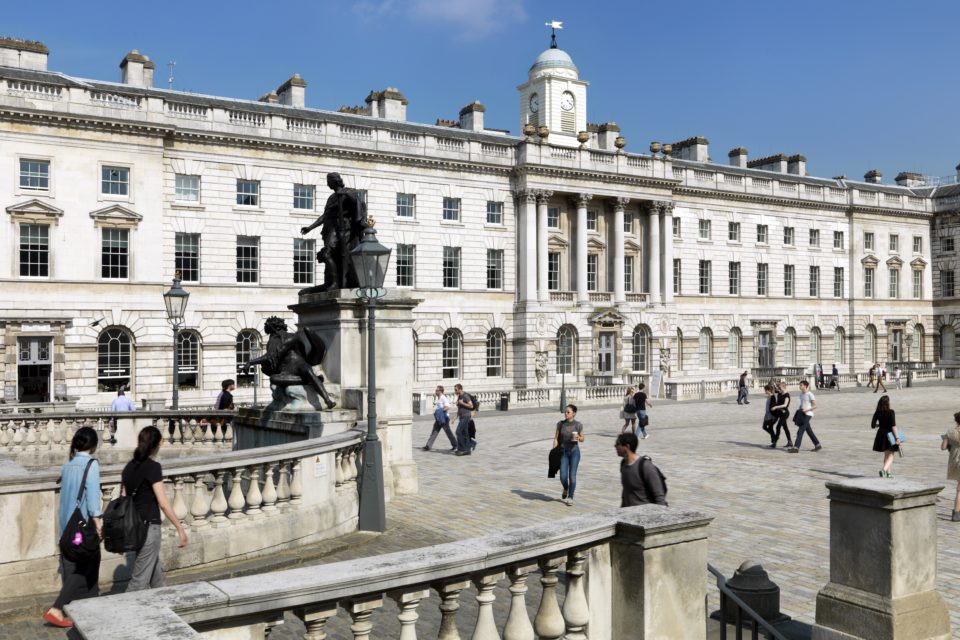The UK has a rich academic tradition and a wide range of universities, each with its own strengths and opportunities. Whatever your interests are, whether it’s sciences or arts, the UK educational system has something for everyone. Thinking about going to university in the UK? This post will introduce you to the types, rankings and history of UK universities. I hope it aids you in your journey towards achieving your academic dreams.
If you’re thinking about studying in the UK, it’s crucial to find the right student accommodation. That’s where uhomes.com comes in. It’s a reliable platform that helps students like you find the perfect place to live. They have partnered with over 2,900 educational institutions and offer rental options recommended by these schools to over 200,000 students studying abroad. So far, they’ve helped more than 55,000 students successfully find their dream homes.

Types of UK Universities

Ancient Universities
Originating from the Middle Ages and the Renaissance, these universities, with their establishment dates spanning from around 1096 to 1582, remain operational to this very day. Their educational spaces reside within buildings carrying centuries of history.
These institutions, while honouring their historical roots, combine traditional lectures with tutorial sessions, fostering a close-knit learning environment that enables students to interact more personally with faculty members.

In the UK, six universities are known as Ancient Universities.
- University of Oxford (1096)
- University of Cambridge (1209)
- University of St Andrews (1413)
- University of Glasgow (1451)
- University of Aberdeen (1495)
- University of Edinburgh (1582)
Red Brick or Civic Universities
The burgeoning demand for advanced education in disciplines such as science, design, technology, and engineering led to the creation of universities in key industrial urban centres.
These institutions, which operated independently from colleges, threw open their doors to students of all faiths and backgrounds, honing their practical skills for application in the real world.

Red Brick University was first the name given to six British universities founded in industrial England during the Victorian era and chartered by the University before the First World War. Today, Red Brick University is a general term with no definitive list.
It generally refers to mid-century universities founded after 1800 and into the early twentieth century that aimed to educate middle-class civilians. These universities were named for the red brick construction of their buildings.
Some of the well-known names among red-brick universities:
- University of Manchester
- University of Liverpool
- University of Birmingham
- University of Sheffield
- University of Leeds
- University of Bristol

Plate Glass Universities or 1960s Universities
Between 1963 and 1992, a number of UK universities were established in response to recommendations from the 1963 Robbins Report on Higher Education, marking an essential chapter in education reform.
The Plate Glass Universities specifically refer to universities established after the publication of the Robbins Report in the 1960s. These universities were pioneers of innovation, modernising various aspects of academia, including syllabi, examinations, administration, teaching methods, and discipline.

The name derives from its architectural design. These schools make extensive use of plate glass in reinforced concrete structures. The architecture contrasts with the red brick universities of Victorian architecture and the more ancient classical universities. These institutions were usually set up on green-field sites, mirroring the self-contained campus design commonly seen in the US.
Plate Glass Universities:
- University of Birmingham
- University of Leeds
- University of Liverpool
- University of Manchester
- University of Newcastle
- University of Nottingham
- University of Southampton
- University of Warwick
- Lancaster University

New universities or Metropolitan Universities
Metropolitan universities are the contemporary counterparts of traditional academic institutions. A significant number of these innovative institutions came about during the 1990s, heralding a new era in education.
Metropolitan Universities have emerged from a diverse range of predecessor institutions in the waves of education reform throughout the 80s and 90s.
Even though their recognition as universities is a relatively recent development, they are deeply rooted in a venerable educational heritage. These dynamic institutions are advancing at an impressive pace, rivalling their time-honoured counterparts with their progressive outlook and state-of-the-art facilities.

Often, metropolitan universities provide a broader spectrum of study options compared to their traditional counterparts. For example, the Metropolitan universities include more out-of-the-box subjects like gaming and events management. And they also provide more specialised courses in areas like business and finance.
Although entry requirements might be more flexible, this varies depending on the university and the specific course. This distinctive characteristic of metropolitan universities allows students to delve into their passions, honing their skills in unique and specific disciplines. Thus, it can substantiate their claim to be pioneering educational institutions.
New universities or Metropolitan Universities:
- University College Birmingham
- Liverpool John Moores University
- Plymouth Marjon University
- Nottingham Trent University
- University of Westminster
- University of Central Lancashire
- Arden universities
- Cardiff Metropolitan University
- University of Chichester

There are additional ways to classify UK universities beyond the ones mentioned earlier. To learn more about the UK Universities, you can refer to this post for further information: UK University Leagues: The Russell Group, G5, N8 and Others
Rankings of UK Universities
The QS World University Rankings is a highly esteemed annual publication of university rankings. Regarded as one of the three most influential and widely observed international university rankings, it provides a comparative analysis of universities’ performance across various sectors.
Here are the Top 10 universities in the UK according to the QS World University Rankings (2024).
Cambridge University: 2
Oxford University: 3
Imperial College London: 6
University College London (UCL): 9
The University of Edinburgh: 22
The University of Manchester: 32
King’s College London: 40
London School of Economics and Political Science (LSE) : 45
University of Bristol: 55
The University of Warwick: 67

FAQ
According to QS World University Rankings (2024), the top 10 universities in the UK are:
Cambridge University
Oxford University
Imperial College London
University College London (UCL)
The University of Edinburgh
The University of Manchester
King’s College London
London School of Economics and Political Science (LSE)
University of Bristol
The University of Warwick
The Russell Group represents a prestigious collective of 24 elite research universities in the UK. It’s something like the Ivy League universities in the US. They’re recipients of a substantial majority of governmental research grants(two-thirds). It is a testament to their high standing in the academic realm. These institutions are universally lauded as the UK’s ‘creme de la creme’.
The oldest university in the UK is the University of Oxford, which was founded in 1906.
In terms of eligibility for Universal Credit in the UK, it extends to those residing in England, Northern Ireland, Scotland, or Wales. Typically, the minimum age requirement for claiming Universal Credit is 18 years. However, those who have entered the State Pension age, currently set at 66 years for both genders, are not eligible to apply for Universal Credit.








